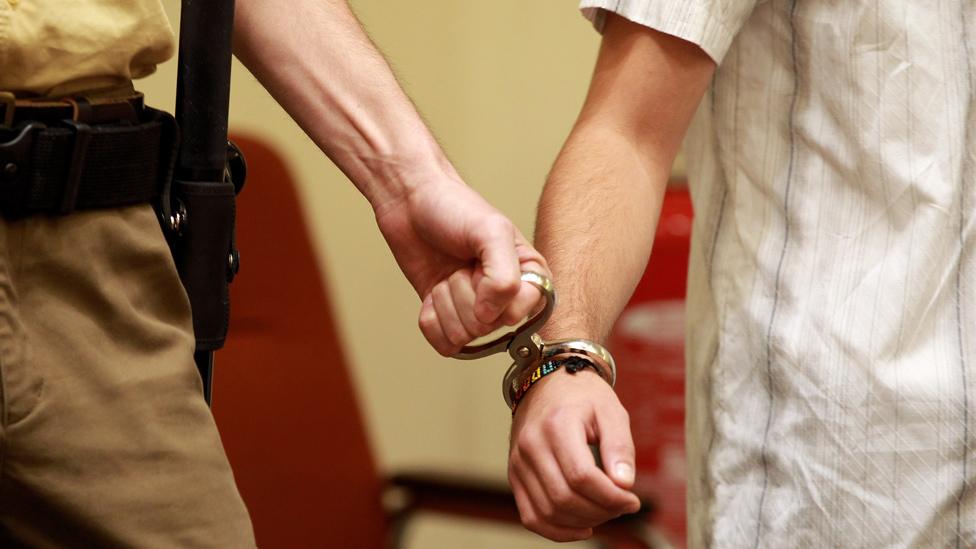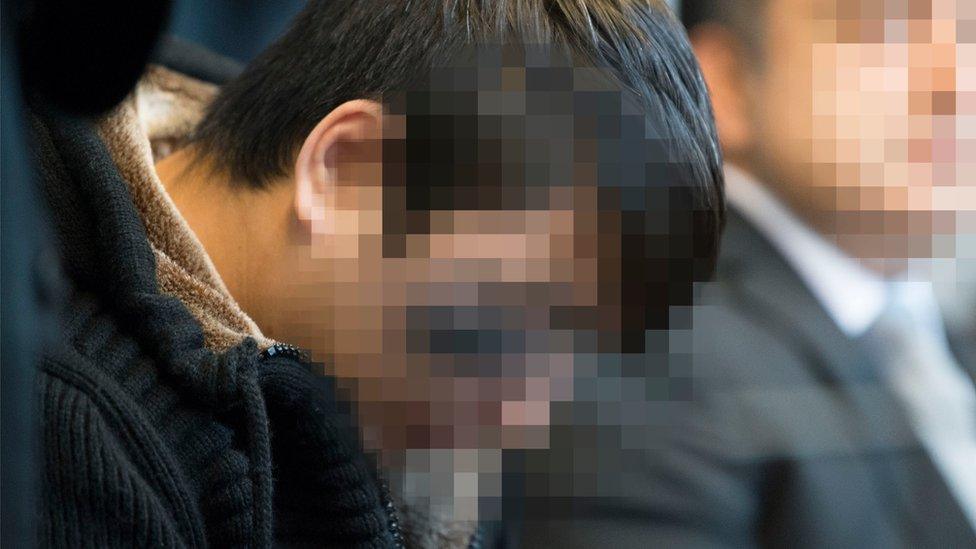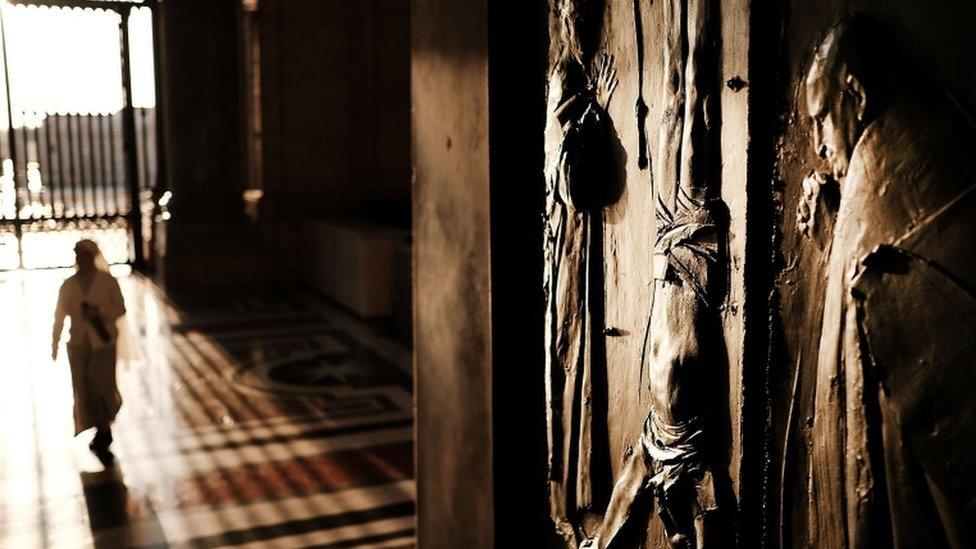Gang rape in Mülheim ignites German child-crime debate
- Published

Children under 14 do not face criminal prosecution in Germany (file pic)
The gang rape of an 18-year-old woman in Germany has sparked a dispute about lowering the age of criminal responsibility.
Two of the suspects in the western city of Mülheim are aged 12 and the other three are 14. Germany does not prosecute children under 14.
All five have been suspended from school and so far one 14-year-old has appeared before an investigating judge.
The victim, found in bushes late on Friday, was taken to hospital.
A police spokesman said the assault involved "considerable violence" and went on for a long time.
The head of the police force union, Rainer Wendt, said "for years we've been demanding that the age of criminal responsibility be lowered in Germany".
However, Jens Gnisa, head of the German Association of Judges, argued that "the equation 'more punishment equals less criminality' does not work with youths". He said the educational rules established in German law were working well to tackle juvenile crime.
The Mülheim rape case, in Germany's industrial Ruhr region, requires action by the Youth Welfare Office to address the suspects' behavioural issues, a senior Child Protection Agency official said.


The minimum age of criminal responsibility varies across Europe, and several countries set it at 14 like Germany, including Italy, the Child Rights International Network (CRIN) reports, external.
Nordic countries set the minimum age at 15.
In May, Scotland raised the minimum age to 12, from eight. But the minimum age in England, Wales and Northern Ireland is 10.
A UK Parliament information sheet says, external setting the minimum at 10 "contravenes international juvenile justice standards".
In 2007 the UN Committee on the Rights of the Child declared a minimum of less than 12 years "not to be internationally acceptable".
In England, the case of two-year-old James Bulger, murdered by two 10-year-old boys in 1993, is cited as an argument for keeping the minimum age at 10.
- Published22 March 2018

- Published12 September 2018
